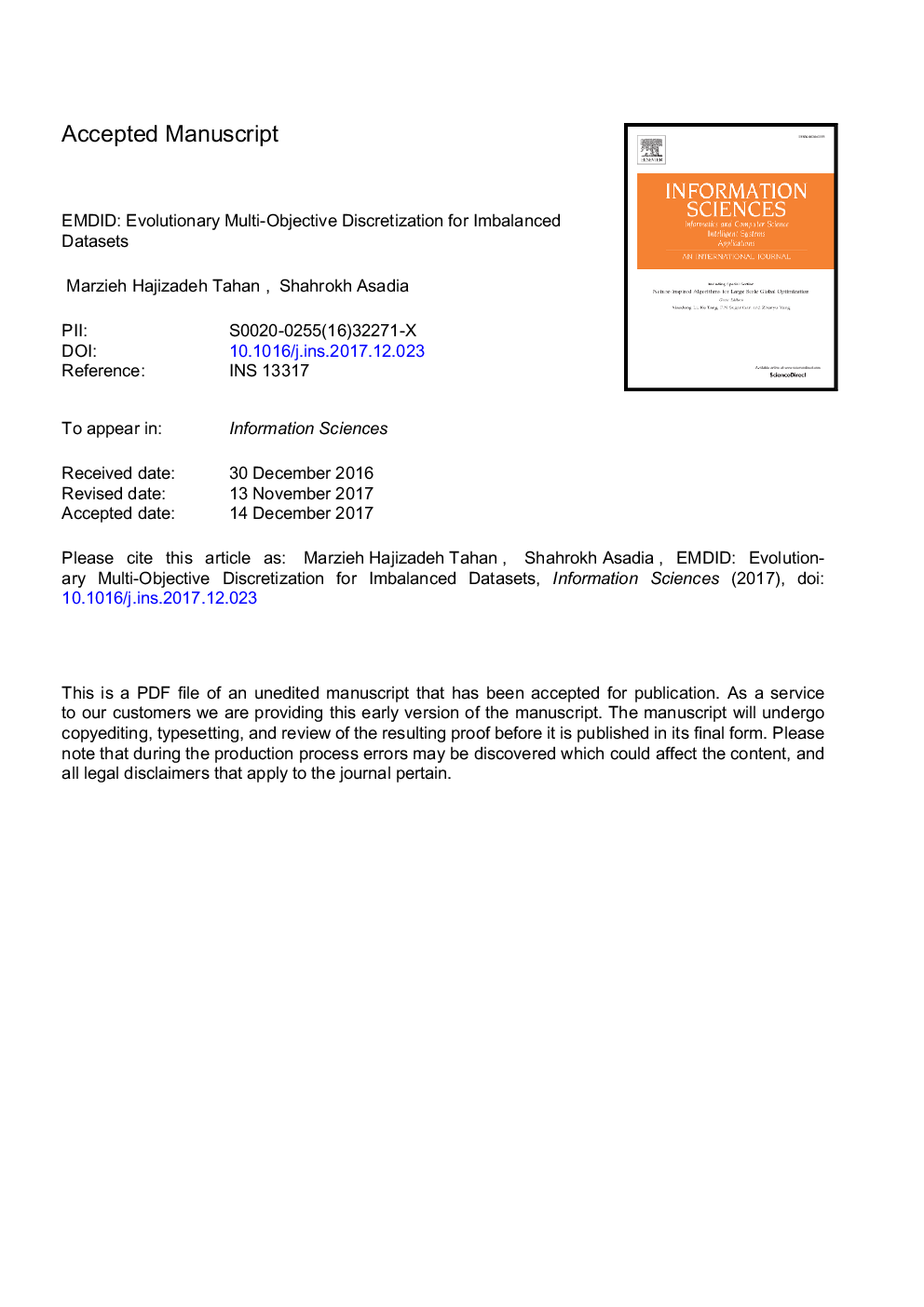| کد مقاله | کد نشریه | سال انتشار | مقاله انگلیسی | نسخه تمام متن |
|---|---|---|---|---|
| 6856808 | 1437970 | 2018 | 40 صفحه PDF | دانلود رایگان |
عنوان انگلیسی مقاله ISI
EMDID: Evolutionary multi-objective discretization for imbalanced datasets
دانلود مقاله + سفارش ترجمه
دانلود مقاله ISI انگلیسی
رایگان برای ایرانیان
کلمات کلیدی
موضوعات مرتبط
مهندسی و علوم پایه
مهندسی کامپیوتر
هوش مصنوعی
پیش نمایش صفحه اول مقاله

چکیده انگلیسی
In recent years, imbalanced dataset classification has received significant attention due to its application in real-world problems, resulting in emergence of a new class of algorithms. Classification algorithms that work with discretized data have been shown to yield better performance. Thus, discretization is often a critical technique in data preprocessing. In this paper, a novel Evolutionary Multi-objective Discretization algorithm for binary Imbalanced Datasets (EMDID) is presented. The proposed algorithm takes advantage of evolutionary multi-objective optimization to simultaneously optimize three objective functions: (1) Area under the ROC curve (AUC); (2) the number of cut points; and (3) low-frequency cut points. The first objective function uses AUC, instead of classification accuracy, to choose better cut points so as to identify the minority class. The second objective function reduces the number of cut points while in the third objective function, low-frequency cut points are selected so that information loss caused by (continuous to discrete) data discretization is minimized. To evaluate the proposed algorithm, 25 imbalanced benchmark datasets are totally used and the results are compared to those of popular algorithms in the literature such as Class-Attribute Interdependence Maximization (CAIM) and Evolutionary Multi-objective Discretization (EMD). Our findings indicate that the proposed algorithm outperforms the other techniques in terms of the number of cut points, AUC, and non-parametric statistical tests.
ناشر
Database: Elsevier - ScienceDirect (ساینس دایرکت)
Journal: Information Sciences - Volume 432, March 2018, Pages 442-461
Journal: Information Sciences - Volume 432, March 2018, Pages 442-461
نویسندگان
Marzieh Hajizadeh Tahan, Shahrokh Asadi,